Are you ready to discover the top 15 agritech startups revolutionizing the way farmers in India grow and sell their crops? From precision farming to digital marketplaces, these innovative companies are using technology to improve efficiency, increase yields, and ultimately empower farmers to succeed in today’s economy.
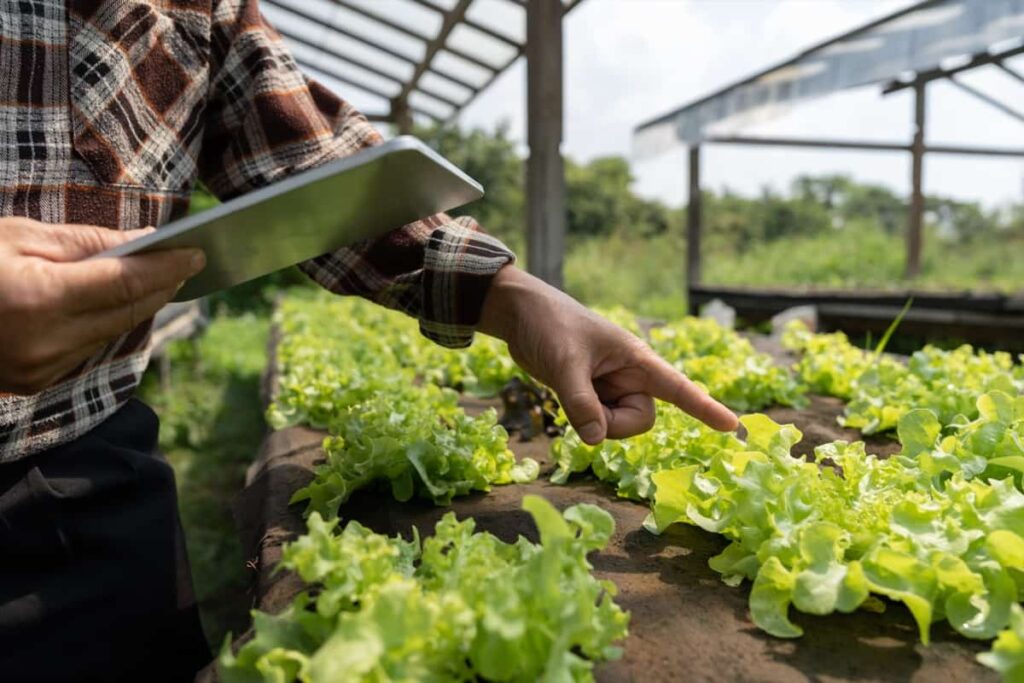
Whether you’re a farmer looking for new tools to improve your operations or an investor looking for the next big thing in agritech, this list has something for everyone. So, let’s dive in and explore the startups shaping the future of agriculture in India!
What are Agritech startups?
Agritech startups use technology to improve various aspects of the agriculture industry. They can focus on precision farming, crop management, weather forecasting, soil analysis, irrigation, livestock management, etc. Agritech startups often use data, software, and hardware to help farmers improve efficiency, increase yields, and reduce costs. Some Agritech startups provide new tools and equipment. In contrast, others use artificial intelligence, machine learning, and IoT to analyze data and help farmers to make better decisions.
Need/Role for Agritech startups in the Agriculture sector
- Efficiency: With the world’s population expected to reach nearly 10 billion by 2050, there is a growing need to produce more food using fewer resources. Agritech startups can help farmers to improve their efficiency and productivity by providing them with new tools and technologies.
- Climate change: Climate change is affecting the agriculture industry by causing weather patterns to become more extreme, which can lead to crop failure. Agritech startups are developing new technologies to help farmers adapt to these changes and protect their crops.
- Sustainability: With an increasing demand for sustainable and organic food, agritech startups can help farmers produce food environmentally, with little or no use of pesticides and chemical fertilizers.
- Lack of access to information: Many farmers in developing countries have limited access to information about new technologies and best practices. Agritech startups can bridge this gap by providing farmers with the latest information and training.
- Innovation: The agriculture sector is one of the oldest industries in the world and has seen relatively less innovation compared to other sectors like technology, healthcare, etc. Startups can bring new ideas, technologies, and ways of doing things in agriculture.
- Lack of financial resources: Many farmers, particularly in developing countries, need more access to financing. Agritech startups can help farmers to secure funding and investment to grow their operations.
- Connecting farmers with marketplaces: Many farmers, especially smallholder farmers, need help to connect with buyers and sell their crops at fair prices. Agritech startups can help farmers to reach new markets and connect with buyers through digital marketplaces.
- Crop Management: With modern technologies like IoT and machine learning, agritech startups can provide farmers with data-driven insights on crop growth, weather patterns, soil analysis, irrigation, and other essential aspects of crop management.
- Smart farming: Agritech startups can provide solutions for precision farming; with the use of drones, autonomous vehicles, and sensor technologies, farmers can optimize planting, harvesting, and other farming operations.
- Rural Development: Many rural areas in developing countries face challenges such as poverty, unemployment, and lack of infrastructure. Agritech startups can help to create jobs and stimulate economic growth in these areas by supporting local farmers and communities.
Agritech startups play an important role in addressing the challenges faced by the agriculture sector in India, such as inefficient supply chain, land ownership issues, lack of adequate infrastructure, and frequent weather disasters.
These startups are utilizing technology to improve farming practices, enhance communication, and increase efficiency in the agriculture industry. They are using digitization, machine learning, and data science to improve the lives of farmers and address the challenges in the Indian agriculture sector.
In case you missed it: Genetically Modified Organisms in Agriculture: GMOs Uses and Benefits in Modern Farming
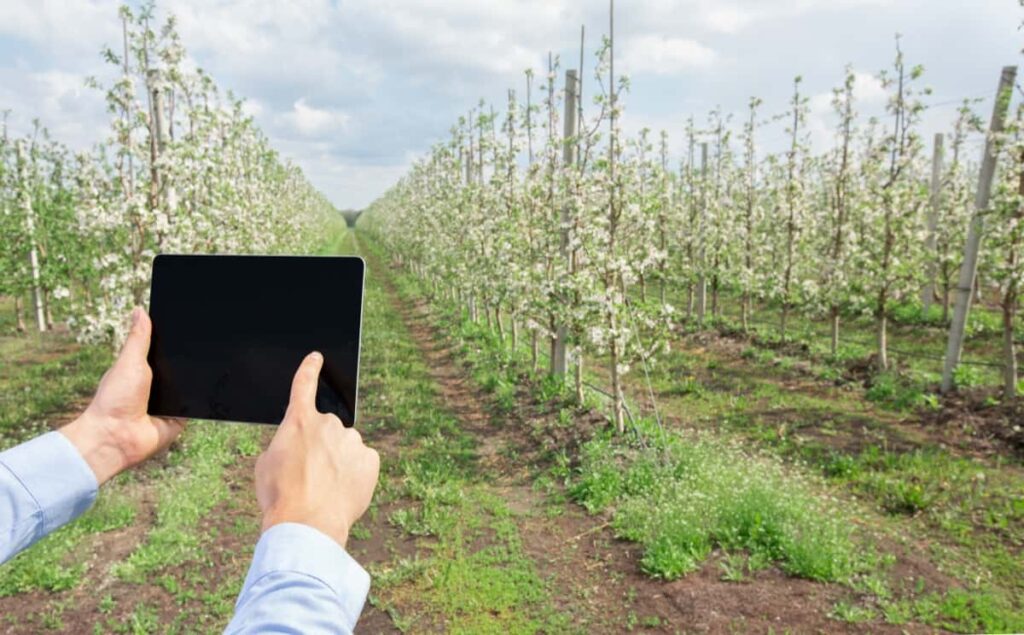
Top 15 Agritech startups helping farmers in India
Cropin
Cropin is a Full-Stack Agritech organization founded in 2010 by Krishna Kumar and headquartered in Bengaluru, India. Cropin combines agriculture with enterprise resource planning and business intelligence. It provides smart SaaS-based solutions to agritech businesses globally. Funding: Cropin has raised $32.6 million in funding to date. In 2021, it raised $20 million in a Series C round from ABC World Asia, among other investors.
- Cropin provides farm businesses with farm management software and a mobile app for connected and data-driven farming.
- Big Data analytics, Artificial Intelligence, Geo-tagging, and Satellite monitoring are used to change the agri-ecosystem.
- Collaborates with many value chain actors along the supply chain to closely check the status of farm produce.
- Allows farm enterprises to use real-time farm data and insights to improve financial, operational, and agronomic aspects.
SFarmsIndia
SFarmsIndia is a web program that serves as a portal for listing and fraction trading agricultural land. Kamesh Mupparaju and Linus Lindgren started the company in 2018, with its headquarters in Hyderabad, India. The company’s primary services include listing and fraction trading of agricultural land. Buyers can use the site to search for land, while sellers can advertise properties for rental or sale.
The company also offers digital contracts for each listing, with each acre of land being subdivided into 2,000 fractions. This digitization of fraction trading makes it easier for buyers to purchase land at reasonable prices, as it eliminates the need for middlemen. SFarmsIndia’s unique selling point is its mandatory requirement for sellers to issue a digital contract against their lands. Eliminates middlemen who inflate prices unreasonably and ensures a seamless transaction.
Farm2Fam
Farm2Fam is a Mumbai-based agritech startup specializing in growing microgreens free from pesticides, herbicides, and chemicals and delivering them straight to customers’ doorsteps. The company was founded in January 2019 by Keya Salot, a law graduate who worked with reputed law firms before starting Farm2Fam. Farm2Fam strives to raise awareness about the human body’s ability to cure itself via natural nutrition.
It also grows specialty nutritional goods using technology and traditional Indian agricultural methods. The company’s goal is to be in every family, with a monthly target of 300+ consumers. Vijay Transtech Pvt. Ltd. is the company’s parent company. The unique selling point of Farm2Fam is that it provides organic food products directly to consumers, ensuring that they get fresh food grown without pesticides and herbicides.
In case you missed it: The Importance of Soil Health in Farming: Role of Soil in Sustainable Agriculture

KhetiGaadi
KhetiGaadi is an agritech startup founded in 2018 by Pravin Shinde and Vishnu Dhas and Headquarters in Pune, Maharashtra, India. Farmers can use the company’s web platform to purchase, sell, rent, compare, and evaluate tractors and other farm machinery. The platform aims to encourage farm mechanization and the use of technology and high-tech products in agriculture to optimize yield in fewer man-hours.
KhetiGaadi is a platform built on advanced angular technology and is considered as secure as online banking portals. It is available in ten languages as an app, and the company’s website is available in English, Hindi, and Marathi. The platform has seen significant growth, with 5 lac downloads in 2020 and over 8 lac downloads by 2022. The platform is connected with 50 lac farmers
KhetiGaadi is a platform that makes it easier for farmers and people involved in farming to buy, sell, or rent farm equipment. It enables farmers to evaluate farm equipment and maximize productivity with fewer man-hours. Farmers may use the app to sell used equipment, rent equipment, find finance alternatives, and more, allowing them to manage their farming operations more efficiently.
Crofarm
Crofarm is an agricultural startup founded by Prashant Jain and Varun Khurana in May 2016 that operates as a Farm-to-Business (F2B) venture. The company’s platform has over 10,000 farmers on its network. It has partnered with several major retailers such as Reliance Retail, Big Basket, Grofers, Big Bazar, Jubilant Foodworks, and Metro Foods. They have received a total funding of $3.8 million and are headquartered in Delhi, India. Connecting farmers with retailers.
The company generates revenue through commission, from 5% on common vegetables to 20% on exotic vegetables. Crofarm has partnered with major retailers such as Reliance Retail, Big Basket, Grofers, Big Bazar, Jubilant Foodworks, and Metro Foods. Crofarm is one of the best-valued companies in the country in the B2B2C space. The startup helps reduce food waste by optimizing supply chain networks and providing consumers with better-quality food.
BigHaat
- BigHaat was founded in 2015 by Satish Nukala and Sachin Nandwana. The company is headquartered in Bangalore. BigHaat has raised $2.6 million in funding from investors such as Beyond Next Ventures, Ankur Capital, GenNext Ventures, and Rockstud Capital.
- BigHaat is a digital marketplace for farmers that offers various services and products, including crop nutrition and agricultural machinery, farming advisory services, seeds, and more.
- The company has developed a platform called Kisan Vedika in collaboration with Microsoft that addresses issues and queries through experts in regional languages.
BigHaat acts as a Digital marketplace and an information platform for farmers and farm owners, assistance with cultivation, and tech support for farm implements. The company has given Agri adviser services and goods to 4 million farmers throughout the country. They also provide a help channel where farmers can leave a missed call on the authorized number, and an Agri specialist will contact them with the relevant information.
In case you missed it: Farming Loans in India: How to Apply, Bank Process, Rates, and Funding for Agricultural Startups
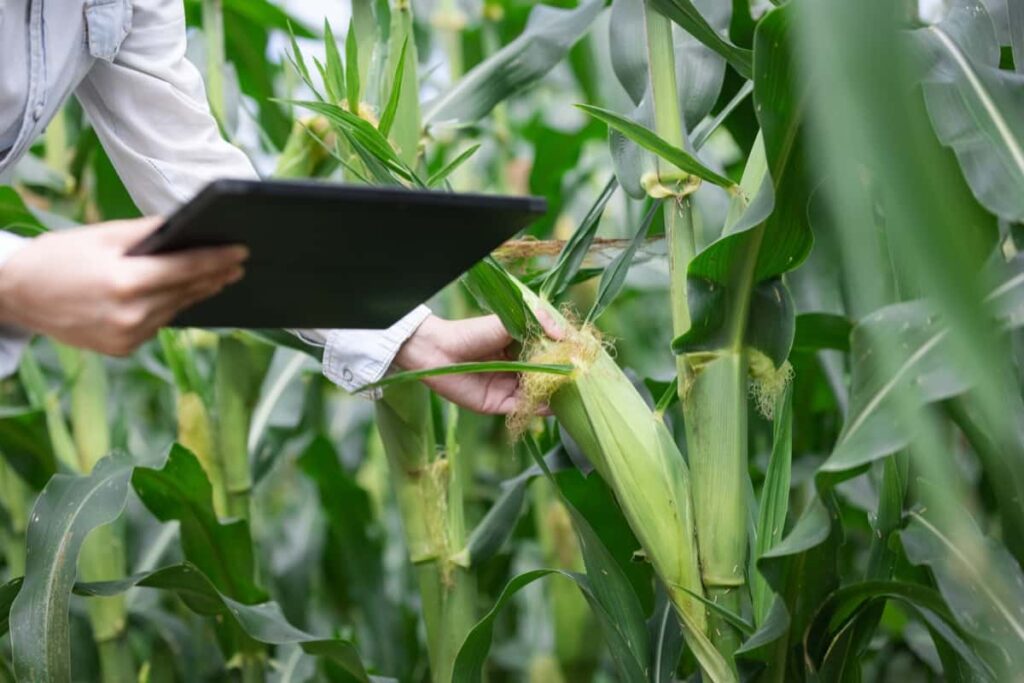
BharatAgri
BharatAgri was founded by Sai Gole and Siddharth Dialani in 2017. The company is headquartered in Pune, and BharatAgri has raised $2.1 million in funding. BharatAgri is a personalized service that aims to educate farmers digitally, allowing them to improve their cultivation practices. The service includes expertise in pesticides and critical weather and soil analysis advisory. It also helps ensure maximum yield on production through timely cost analysis.
BharatAgri assists at all stages of farming via both offline and online technology, such as in-app live chat, interactive voice responses (IVR), and WhatsApp. The company has shifted to a Business-to-Farmer (B2F) model to provide better services to farmers needing technical assistance through digital farming.
The platform aims to help farmers improve their yields and overall productivity using digital tools and resources. It can include information on seed selection, planting techniques, pest and disease control, and other factors affecting crop growth and health. BharatAgri aims to empower farmers with the knowledge and skills they need to be successful and sustainable in their farming operations.
Aarav Unmanned Systems
Aarav Unmanned Systems is a drone startup founded in 2013 by Nikhil Upadhye, Suhas Banshiwala, Vipul Singh, and Yeshwanth Reddy. The company is headquartered in Bengaluru and was incubated at various premier engineering institutions in India. Aarav Unmanned Systems is a drone startup of engineering institutions in India.
Using drones, they provide enterprise solutions such as industrial inspection, surveying, mapping, and precision agriculture. They aim to create Efficient irrigation systems, use fertilizers, Chemicals, and pesticides, and provide early signs of failure through drone systems. They are among the few startups using drones to improve agriculture and are the country’s first to introduce precision agriculture. Aarav Unmanned Systems has received $748.5K in funding over two rounds.
Aarav Unmanned Systems provides accurate 3D representations of the terrain surface, and their solutions can optimize irrigation, fertilization, and pesticide distribution and provide early failure warnings. They can change the way decisions are made in agriculture through their solutions.
Aarav Unmanned Systems is one of the few startups that use drones to improve agriculture. They are one of the country’s first companies to introduce precision agriculture. They have the potential to make precision agriculture scalable in India, which needs to catch up in employing this type of technology.
In case you missed it: The Benefits of Incorporating Organic Practices in Vegetable Cultivation
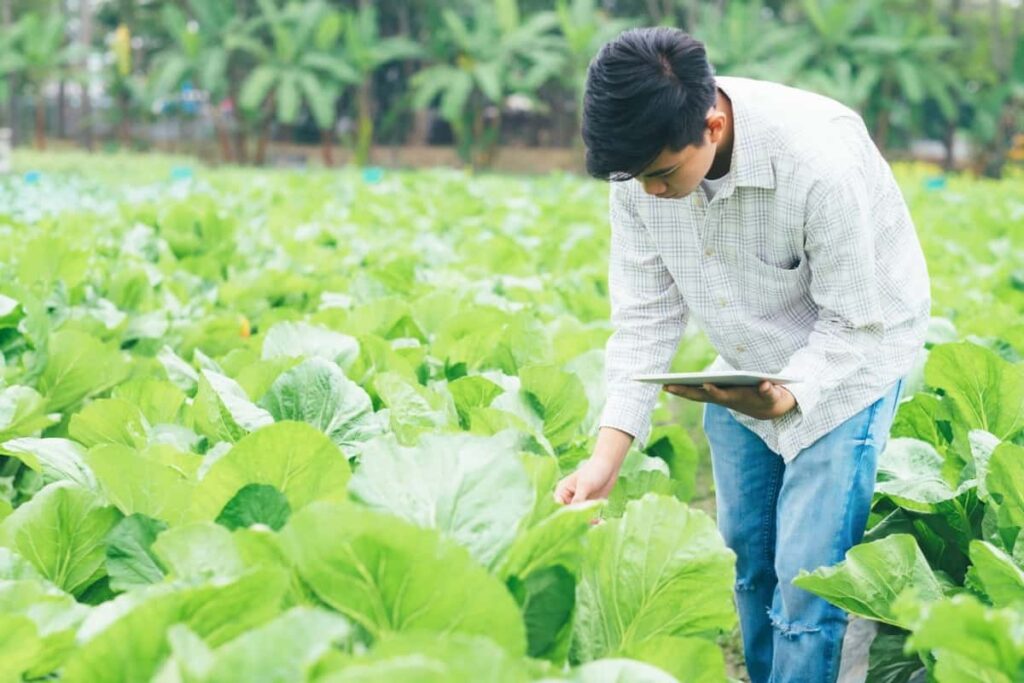
Agrowave
Agrowave is an agritech company founded in 2017 by Anu Meena, with headquarters in Delhi. Agrowave is an Agritech startup that connects farmers directly to businesses and builds a sustainable supply chain. The startup aims to simplify business for farmers by eliminating middlemen and providing them with the best product price. Agrowave has designed and built several pick-up stations for farmers.
As a result, they can go far to market their items. Farmers sell their products through an iOS and Android mobile app, delivery trucks pick up the product from farmer gates and pick-up points, and hassle-free payments are accepted. This product is then delivered to end users via systematic route mapping. Agrowave offers a farm-to-business paradigm using machine learning to optimize the supply chain. Customers can acquire fresh vegetables directly from the farms using their services.
Intello Labs
Intello Labs is an ag-tech startup that assesses the quality of food goods using computer vision and artificial intelligence. The company was founded in 2016 by Milan Sharma, Nishant Mishra, Himani Shah, and Devendra Chandani and is headquartered in Gurgaon, India. Intello Labs aims to help farmers, merchants, retailers, food service firms, exporters, and others improve customer happiness and reduce losses. Intello Labs uses computer vision to evaluate the quality and value of perishables.
It allows for reasonable pricing and lower food wastage. The company serves various clients across the food industry, including growers, traders, retailers, food service companies, exporters, and more. Intello Labs reports rapid growth in India while also expanding into International markets such as Southeast Asia, China, and the United States. The company has already established partnerships with several major clients in these regions, including Reliance Fresh, Dole, Ocean Spray, and leading e-grocery.
Waycool
Waycool is an Indian agricultural startup and food distribution company founded in 2015 by Sanjay Dasari, located in Bangalore. Waycool is a leading agricultural startup and food distribution company based in India. With a network of 35,000 farmers, the company produces a wide range of food products, including vegetables, fruits, rice, and pulses.
The company’s primary goal is to reorganize the disorganized perishable supply chain by addressing the issue of cold storage by connecting farmers to cold storage owners. Waycool has a retail presence in Chennai through SunnyBee, operating retail stores, mobile stores on trucks, and e-commerce. The company has received a total funding of $221.5 million from investors such as Lightbox Ventures, IndusInd Bank, Samunnati, RBL Bank, and InnoVen Capital.
In case you missed it: Agricultural Biotechnology in India: Role, Examples, Jobs, Salary, Courses, and Colleges
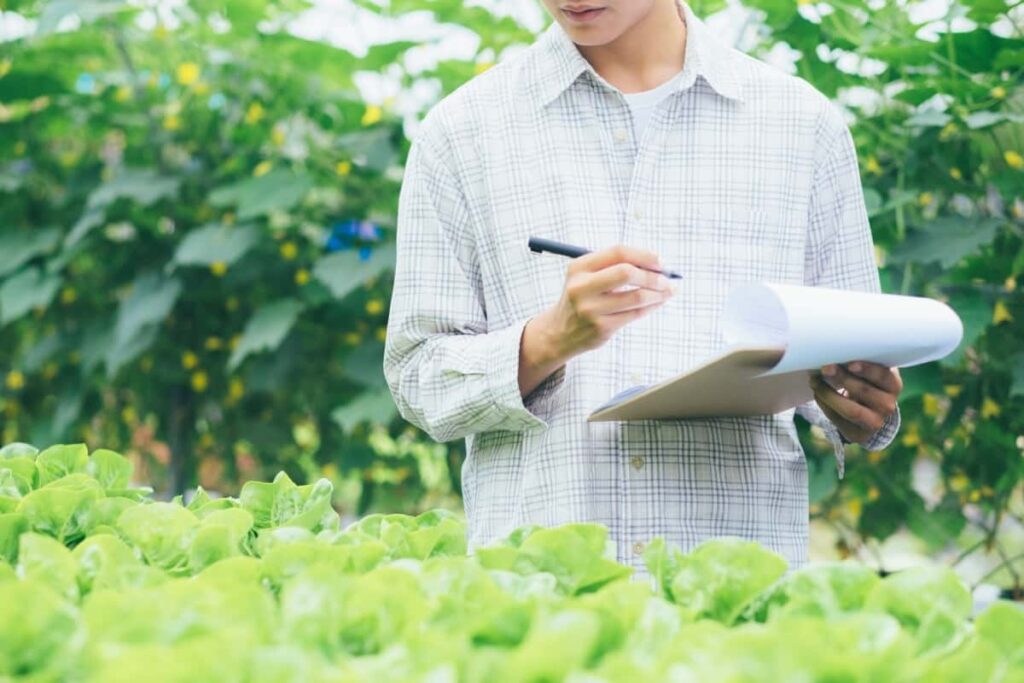
Ninjacart
Ninjacart is a leading agriculture supply chain company based in Bangalore, India and founded in 2015 by Thirukumaran Nagarajan and a team of co-founders, including Ashutosh Vikram, Kartheeswaran K K, Sharath Loganathan, Thiru Nagarajan, and Vasu Devan. Currently, the company transfers more than 60 tonnes of produce daily from farm to retailer in less than 14 hours, which is much faster than the typical supply chain.
Ninjacart helps more than 2,000 farmers sell more than 80 vegetables and fruits daily to more than 800 retailers and restaurants in Bengaluru and also claims to have reduced 4% of the total supply chain waste. As of 2021, Ninjacart has raised a total funding of around $194.2 million from investors such as Flipkart and Walmart. Ninjacart seeks to improve supply chain efficiency by delivering fresh vegetables from farms to businesses.
Fasal
Fasal is an agritech startup based in Bangalore that uses data science and artificial intelligence to provide predictions for farming. The company was founded in 2018 by Shailendra Tiwari and Ananda Verma to promote sustainable farming practices through precise decisions. The platform provides farmers with data about pests and diseases and hyperlocal weather forecasts.
It helps them manage finances by optimizing fertilizer and pesticide usage. It has helped farmers conserve over 3 billion liters of water since its start. Fasal provides microclimatic forecasts, pest and disease predictions, and irrigation alerts using its proprietary technology, which can be accessed on any device, including smartphones, tablets, and the web.
Bijak
Bijak is a B2B agri commodities exchange platform founded in 2019 by a team of five: Nikhil Tripathi, Mahesh Jakhotia, Nakul Upadhye, Jitender Bedwal, and Daya Rai. The headquarters of the startup is located in Gurugram. So far, it has raised a total funding of $33.9 million. Bijak aims to bridge the gap between buyers and sellers in the agricultural sector by providing a platform that connects them.
It also acts as a bookkeeping app that helps users keep track of all transactions and related documents on their phones. The platform covers over 100 agricultural commodities and is spread across 27 cities and union territories in India. Bijak also provides financial aid through quick loan disbursements and immediate payments to suppliers. It helps to improve logistics and provides significant working capital for both parties.
Bijak’s unique selling point is that it connects buyers and sellers and provides them with the financial aid needed to source agricultural commodities. It helps to improve logistics and provides significant working capital for both parties, which is a major advantage over other agri commodities exchange platforms.
In case you missed it: Top 20 Agricultural Producing Countries in the World

Ergos
Ergos is an agritech company founded in 2012 by Kishor Jha, Priyanka Kumari, and Praveen Kumar. The company is headquartered in Patna and provides digitized solutions for food grain storage and management. Ergos offers farmers the ability to store their grains in “Grain banks” and facilitates loans and supply chain management through networks with NBFCs and Banks. The farmers can withdraw their produce, even a single bag of grains, at any time.
The company claims to have supported 25000 farmers so far. It aims to expand its footprint outside Bihar by setting up 500-600 new grain banks across various states. Ergos provides a mobile app-based platform to connect farmers with cold-storage owners. Ergos addresses the lack of cold storage in Indian agriculture and fills the post-harvest supply chain management gap. Ergos helps farmers store their grains in their “Grain bank” and facilitates loans and supply chain management through networks with NBFCs and Banks.
Conclusion
The agritech industry in India is rapidly growing, with many startups working to improve the efficiency and profitability of the country’s farming sector. These 15 startups, ranging from precision farming platforms to mobile-based marketplaces, are making a significant impact by providing farmers with access to new technologies, better information, and more market opportunities. They are helping farmers to overcome challenges such as low productivity, lack of information and market access and high cost of production.
- How to Raise Pigs in Your Own Backyard: A Comprehensive Guide
- Budget Friendly Sheep Shed Ideas: Cheap and Low-Cost Tips
- How Much Do Cattle Farmers Make: Revenue Streams in Cattle Farming
- Management Pests and Diseases in Your Cotton Field
- Sheep Farming Business Plan for Beginners
- Aquaponic Farming at Home: A Step-By-Step Guide
- Profitable Village Farming Business Ideas in 2024
- High-Yield Aquaculture: Fast-Growing Fish for Farming
- Effective Fish Pond Construction Techniques for Beginners
- Irrigation and Water Management in Pineapple Farming
- Blossom to Harvest: Mastering Flowering and Pollination in Papaya Farming
- Pig Fattening Essentials: From Selection to Sale for Beginners
- Raising Wagyu Cattle: A Complete Guide for Premium Beef Production
- Soil Types and Their Water Holding Capacity
- Optimizing Irrigation Schedules for Coconut Groves for Enhanced Yield
- Espresso Your Garden: Coffee Grounds for Healthier Acid-Loving Plants
- The Best Soil Mix for Snake Plants: How to Mix Your Own Snake Plant Soil
- Green Thumb Success: Expert Tips for Cultivating Greenhouse Beans All Year Round
- Bloom All Year Round: The Ultimate Guide to Indoor Hyacinth Care
- Eco-Friendly Gardening: How to Make Liquid Fertilizer from Kitchen Waste
- Ultimate Guide to Grow Anise in Pots: Explore Seed Propagation to Harvesting
- Guide to Raising Chester White Pigs: Discover Breed Facts to Growth Management
- Mastering the Elegance: The Ultimate Guide to Weeping Cherry Tree Care, Planting, and Maintenance
- Ultimate Guide to Planting Garlic in Grow Bags: Growing Strategies for Beginners
- How to Fix Spider Plant Leaf-Related Problems: Natural and Organic Remedies
- 10 Reasons Why Your Tulsi Plant is Shedding Leaves: Home Remedies and Solutions
- Optimizing Growth and Yield: The Advantages of Palm Bunch Ash Fertilizer
- Utilizing Neem Oil Extract as a Natural Pesticide for Hydrangea
- From Soil to Harvest: Various Ways in Which Farmers Can Use AI Tools
- Steps to Encourage and Induce Citrus Flowers: A Comprehensive Guide
- How to Fix Snake Plant Leaf-Related Issues: Natural and Organic Remedies
- Transform Your Garden into a Fragrant Oasis with Raat Ki Rani (Night Blooming Jasmine)
- Discover the Ideal Chicken Breeds for Philippine Farms
- How to Create a Poultry Egg Farm Business Plan for Profits
- Grow Lemon Cucumbers Like a Pro: Insider Techniques for Bountiful Yields
- Ultimate Guide to Caring for Your Pink Princess Philodendron: Tips for Thriving Variegation
